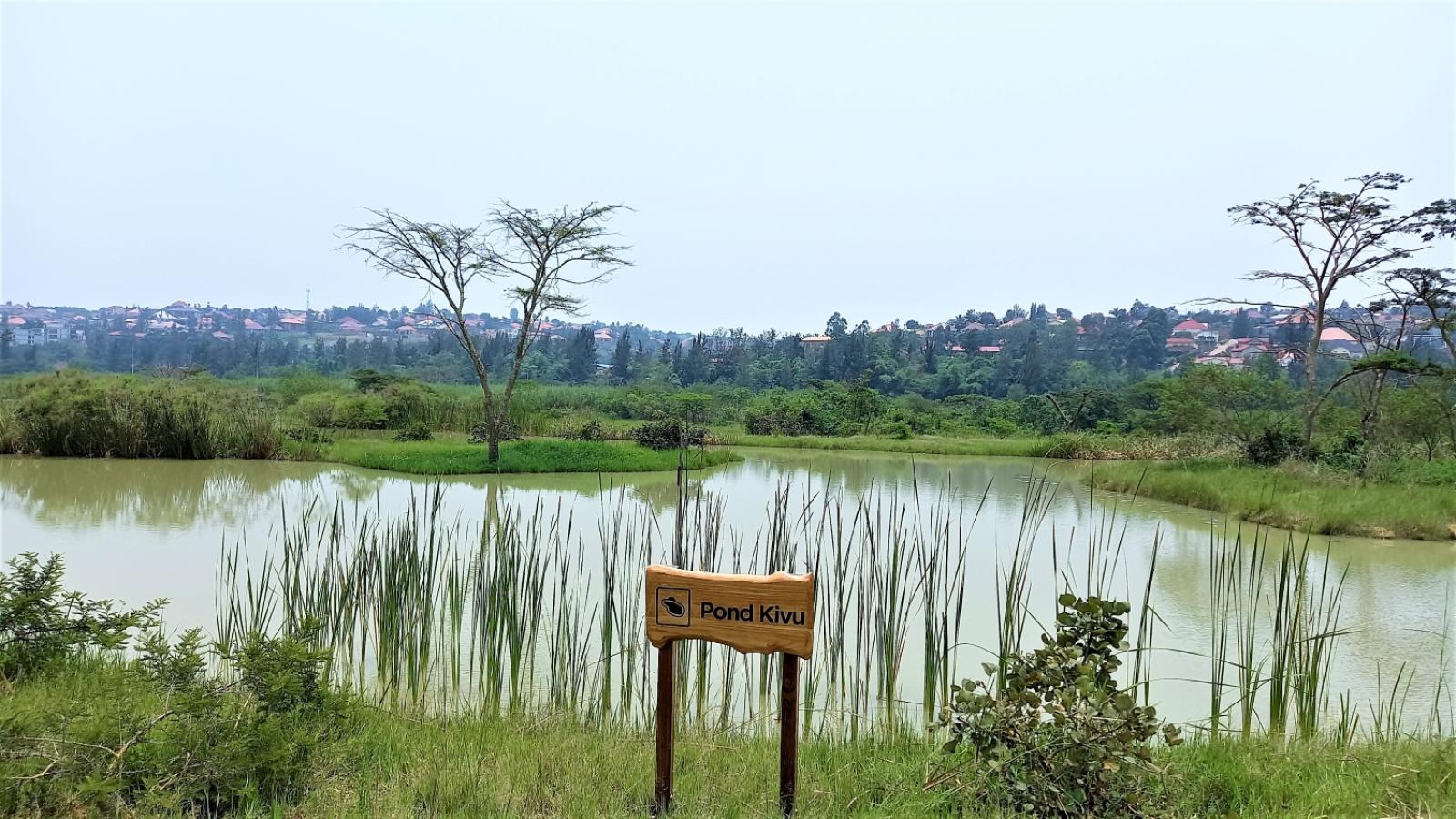News
Rwanda unveils $175 million urban development initiative
The Rwanda Urban Development Project II is one of nine UrbanShift local interventions, and focuses on climate resilient infrastructure, service delivery and ecosystem rehabilitation in Kigali and additional cities.
Nyandungu Wetland Park, Kigali, Rwanda
The second phase of the Rwanda Urban Development Project (RUDP II) unveiled on Thursday, May 5, is expected to provide basic infrastructures in secondary cities and address unplanned settlements and floods in the City of Kigali, among other interventions.
It was launched in Kigali by the Government of Rwanda through the Ministry of Infrastructure, the World Bank, and other development partners.
The estimated total cost for the project is about $175.45 million, of which $150 million is financed through World Bank’s International Development Association (IDA) grant (50%) and credit (50%).
Other financiers of the initiative are GEF-7 Trust Fund with $8.07 million, the Climate Investment Funds with $2.38 million as part of the Pilot Program for Climate Resilience (PPCR), as well as the Government of Rwanda, which will provide $15 million as counterpart funding for anticipated compensation and resettlements costs under the project.
Of that $150 million financing from IDA, $68.93 million will be used to support the City of Kigali with a focus on integrated urban planning for resilient, inclusive infrastructure delivery, while $80.85 million will be used to support secondary cities with investments largely targeting infrastructure and service delivery in those cities.
Again, of the City of Kigali funding, flood infrastructure (hotspots) will get $12 million, while wetland rehabilitation will receive $12.43 million.
Speaking at the launch of the initiative, Infrastructure Minister Ernest Nsabimana said that the second project is built on the successful implementation of the first phase (RUDP I).
He cited the effective upgrading of the Agatare Project meant to upgrade informal settlements in Biryogo, Agatare, Kiyovu and Rwampara areas of Nyarugenge District.
According to information from the Ministry of Infrastructure, the Agatare Upgrading Project, which started in 2018, has overhauled the four informal settlements that are said to host more than 83% of over 26,000 residents of Nyarugenge Sector in Nyarugenge District.
Most of these unplanned settlements do not have basic infrastructure, such as roads, pedestrian ways, drainage, street lights, electricity, water, and other services that are needed to facilitate people’s daily businesses. The RUDP provided such basic infrastructure, hence improving the livelihoods of the residents in question.
“This project has proven to be effective in redeveloping informal settlements in line with the City of Kigali’s vision and master plan,” the minister said.
“Kigali is a hilly city. You realize that we had an issue with stormwater management as there are parts of the City that are prone to floods, such as Rugunga and Mpazi, among others. So, this project will help address the flooding problems in the six flood hotspots in this project phase."
Rubavu District Mayor Ildephonse Kambogo told The New Times that this project will result in significant socio-economic development, pointing out that it will benefit at least 28,000 residents of the district.
Thanks to the project, he said that 9.8 kilometers of tarmac road will be built, with construction starting by the end of this month.
The road will connect Rugerero Sector and Petite Barrière – a border between Rubavu and DR Congo’s Goma.
“Transport will be eased thanks to this road, which will facilitate cross-border business as well,” he said, adding that some members of the local community will be employed under the auspices of the project.
"This project will support infrastructure development, which is important to a secondary city," the mayor continued, adding that it will also help to effectively manage sewage, which has been a recurrent problem in the border district.
Settlement upgrade, flood control and wetland rehabilitation in Kigali
RUDP II includes the comprehensive upgrading of informal settlements, enhancing resilient infrastructures like Gikondo and Nyabugogo wetland rehabilitation, and the rehabilitation of six identified flood-risk hotspots (Kinamba, Rugunga, Rwandex-Majerwa, Mulindi, Masaka, Gacuriro).
The four unplanned settlements selected in the City of Kigali are Mpazi in Nyarugenge District, Gatenga in Kicukiro District, and Nyagatovu and Nyabisindu both located in Gasabo District.
Pudence Rubingisa, the City of Kigali Mayor, said that the choice of the four informal settlements was based on the living conditions of their residents.
He also said that this second phase will redevelop wetlands available in the City from Rwampara to Gatenga, Gikondo to Rugenge towards Nyabugogo.
“Some of the wetlands were inhabited, while factories were built in others such that they were damaged. Now, a plan to rehabilitate them is going to be implemented in accordance with the wetland master plan,” the mayor explained.
Given that the amount of rainfall has increased according to the observed trend, there are major water drains such as Mpazi and Nyagatovu, which will be constructed in this project in an effort to contain floods.
“The project helps improve the living conditions of residents and mitigates disaster effects, especially for those living in high-risk zones,” Rubingisa said, adding that they are still mobilising funds in order to redevelop more unplanned settlements in the City of Kigali.
This article was originally published in The New Times, Rwanda's leading daily newspaper.
Learn more
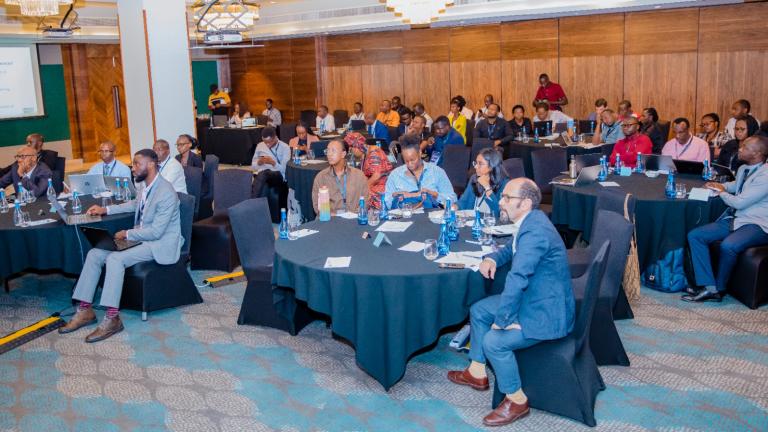
Flood Resilience and Biodiversity in Focus: Rwanda’s Vision for Sustainable and Resilient Cities
The first Dialogue in Rwanda brought together national and local governments, development partners, and experts to develop strategies for flood resilience and biodiversity in Rwandan cities, aligning local priorities with national urban policies.
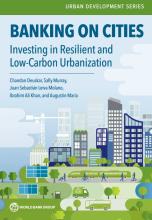
Banking on Cities: Investing in Resilient and Low-Carbon Urbanization
The publication provides the most comprehensive and up-to-date assessment of key resilient and low-carbon investment costs in major urban sectors in all low- and middle-income countries to 2050.
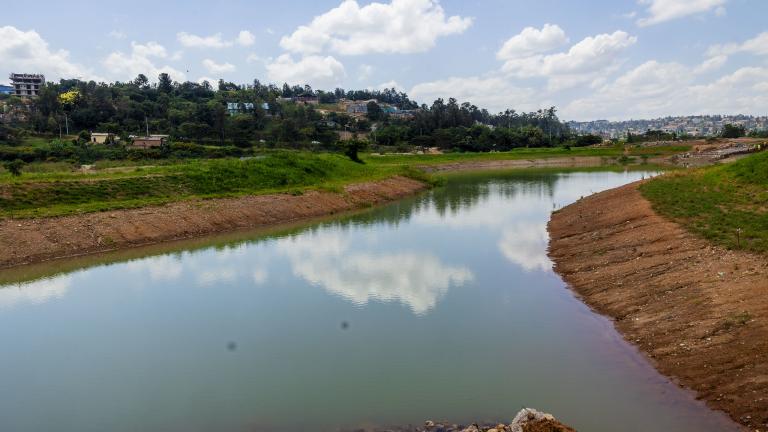
Breathing New Life into 5 Kigali Wetlands to Enhance Climate Resilience and Quality of Life
These formerly degraded sites will soon welcome visitors for recreational and educational opportunities—while alleviating flood challenges for the city.
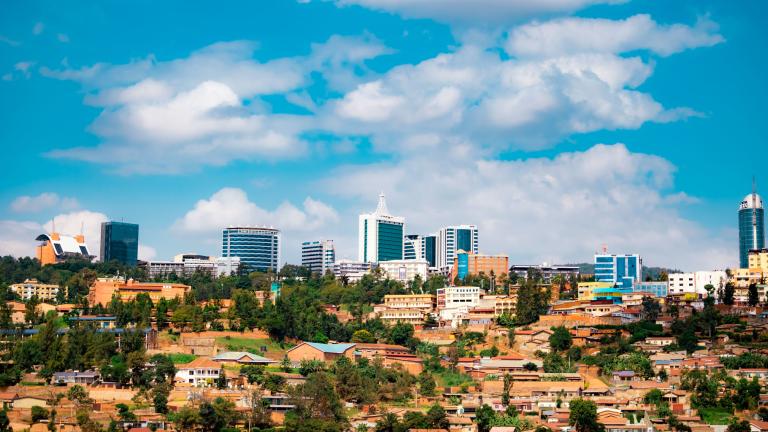
First Rwanda Multilevel Dialogue
The first multilevel dialogue for Rwanda focused on the theme of new-age infrastructure to build flood resilience and enhance biodiversity in Rwandan cities.
